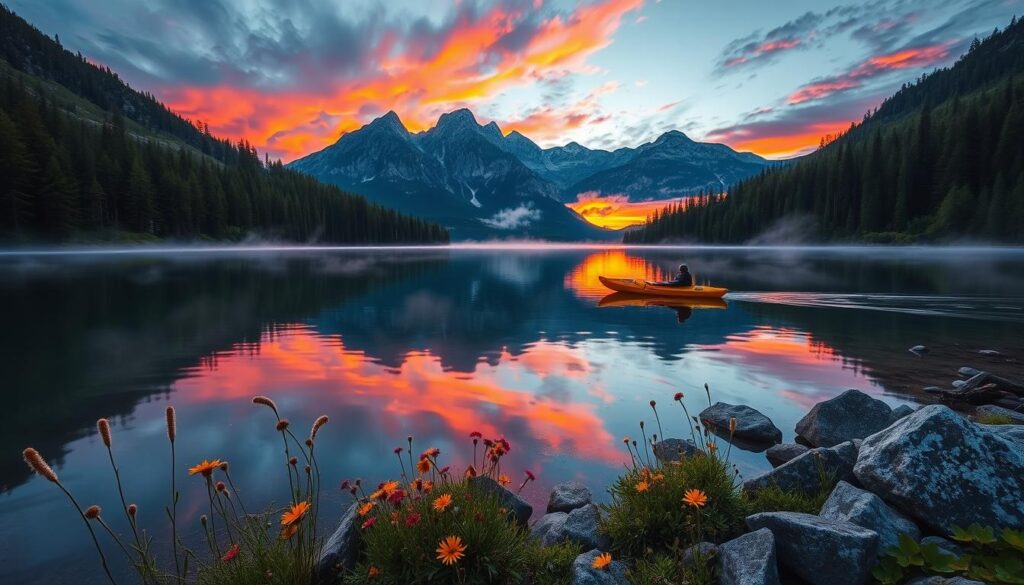
Kayak Camping: Uncover the Hidden Gems of Nature
When my paddle sliced through the still morning water, I realized that kayak camping is more than just an escape—it’s a gateway to untouched natural beauty. Unlike traditional camping, kayak camping lets you explore hidden coves, secluded beaches, and pristine landscapes that few get to see.
Why Choose Kayak Camping?
Kayak camping offers a unique way to experience nature by combining the thrill of paddling with the serenity of camping. It allows you to:
- Access remote and unspoiled environments
- Enjoy both adventure and tranquility in one trip
- Develop essential survival and outdoor skills
Essential Gear for Kayak Camping
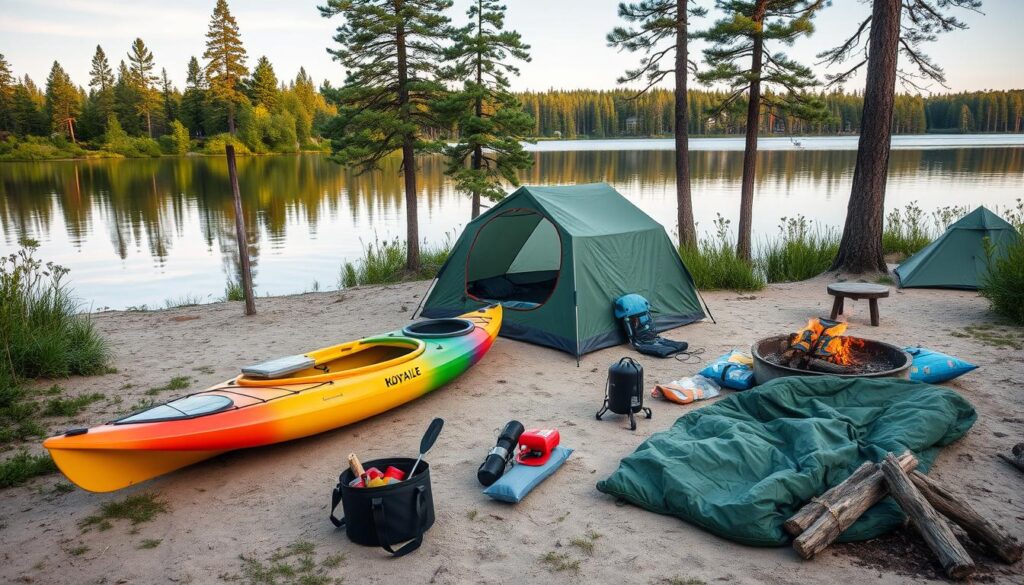
Preparation is key to an enjoyable and safe adventure. The right gear ensures a seamless experience on the water and at camp.
Choosing the Right Kayak
Your kayak choice will affect your trip’s success. Consider:
- Storage capacity – Enough space for camping gear
- Stability – Suitable for different water conditions
- Weight & maneuverability – Easy to paddle and transport
- Durability – Built for extended outdoor use
Must-Have Camping Equipment
Pack efficiently with these essentials:
Shelter: Lightweight waterproof tent, compact sleeping bag
Cooking: Portable stove, compact cookware, water filtration system
Clothing: Quick-dry layers, waterproof jacket, extra clothes
Safety & Navigation: PFD, waterproof first aid kit, GPS or waterproof map, emergency communication device
Pro Tip: Always check local regulations and weather forecasts before setting out.
Best Destinations for Kayak Camping
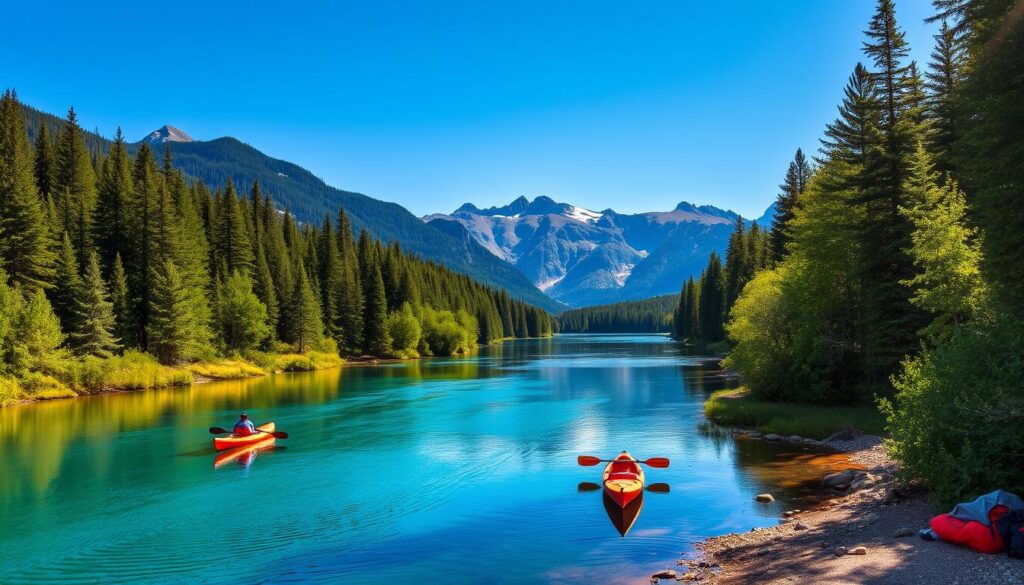
Choosing the right location can make or break your adventure. Consider your skill level and what kind of wilderness experience you’re seeking.
Top Rivers for Kayak Camping
| Waterway | Difficulty Level | Best Season | Highlights |
|---|---|---|---|
| Colorado River, AZ | Intermediate to Advanced | Spring/Fall | Grand Canyon views, challenging rapids |
| Boundary Waters, MN | Beginner to Intermediate | Summer | Pristine wilderness, interconnected lakes |
| Chesapeake Bay, MD | Beginner | Late Spring/Early Fall | Calm waters, diverse marine ecosystem |
Setting Up Your Campsite
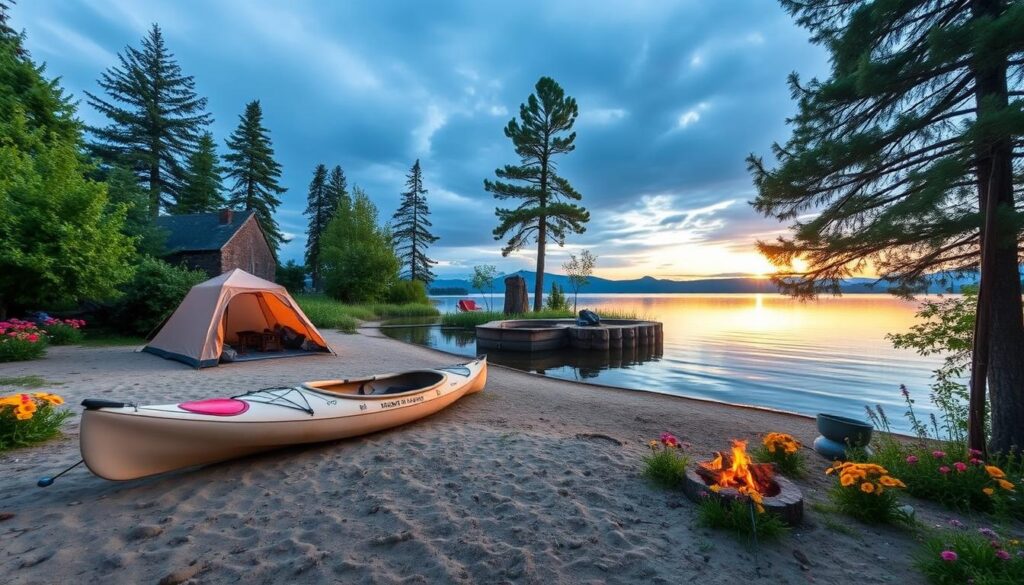
A well-planned campsite enhances comfort and protects the environment.
Choosing the Perfect Spot
Look for a site that is:
- On elevated ground (avoids flooding)
- Flat and stable for tent setup
- Sheltered from wind
- Near a water source but safely distanced
- Away from wildlife paths
Waterproof Storage Solutions
Keep your gear dry with these tips:
- Use color-coded dry bags for easy organization
- Store electronics in additional waterproof containers
- Balance weight evenly in your kayak
Leave No Trace Principles
Respect nature by following these guidelines:
- Pack out all trash
- Use established campsites when possible
- Avoid disturbing wildlife habitats
- Use biodegradable soap and minimize campfire impact
Seasonal Considerations for Kayak Camping
Every season offers different experiences and challenges. Plan accordingly:
Spring: Thrilling with fresh landscapes, but expect unpredictable temperatures and high water levels.
Summer: Ideal for warm waters and wildlife viewing, but prepare for crowded areas.
Fall: Beautiful foliage, cooler temperatures, and fewer crowds—perfect for peaceful exploration.
Winter: Requires advanced gear and preparation. Dry suits and thermal layers are essential.
Tip: Always research local weather patterns and water conditions before embarking on your trip.
Conclusion
Kayak camping is an unparalleled way to explore the wild. With the right gear, planning, and respect for nature, your adventure will be both thrilling and fulfilling. Whether paddling along rivers, across lakes, or along coastlines, each trip offers new discoveries and unforgettable moments.
Now is the time to plan your next kayak camping adventure. Research waterways, gather your gear, and embrace the call of the wild. The journey starts with a single paddle stroke—where will yours take you?
FAQ
What type of kayak is best for overnight camping trips?
A touring or sea kayak with ample storage, good stability, and sealed compartments is best. Brands like Wilderness Systems, Old Town, or Perception offer excellent options.
How do I waterproof my camping gear?
Use dry bags of various sizes, waterproof backpacks, and hard cases for electronics. Brands like Sea to Summit and SealLine provide reliable waterproofing solutions.
What essential safety equipment should I bring?
Pack a PFD, marine radio or satellite device, first aid kit, emergency signals, waterproof maps, compass, and GPS. Extras like a bilge pump and repair kit are also useful.
How much experience do I need for kayak camping?
Beginners can start with short trips or guided tours. Taking a paddling course and practicing in calm waters will build confidence.
What are the best seasons for kayak camping?
Summer and early fall are ideal. Late spring is also good in certain locations. Winter trips require advanced skills and specialized gear.
How do I choose a safe campsite while kayaking?
Select a dry, elevated spot sheltered from wind, away from wildlife paths, and in accordance with local regulations.
What food should I bring for kayak camping?
Pack lightweight, non-perishable foods like dehydrated meals, energy bars, and dried fruits. Store food in bear-proof containers if needed.
How do I handle bathroom needs in the wilderness?
Follow Leave No Trace principles. Use a portable toilet or trowel, stay 200 feet from water sources, and pack out all waste using sealable bags.
What fitness level is required for kayak camping?
A moderate fitness level is recommended. Regular paddling, strength training, and cardio exercises can help prepare for long trips.
How can I protect my electronics?
Use waterproof cases, dry bags, and solar chargers. Carry a backup communication device like a marine radio or satellite messenger.
Your kayak camping adventure awaits! Prepare wisely, respect nature, and embrace the thrill of exploring the great outdoors.
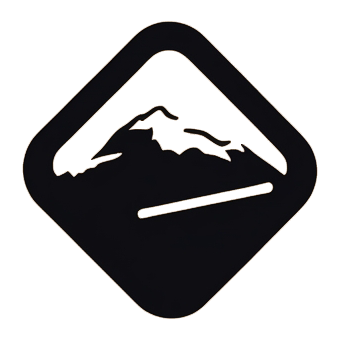
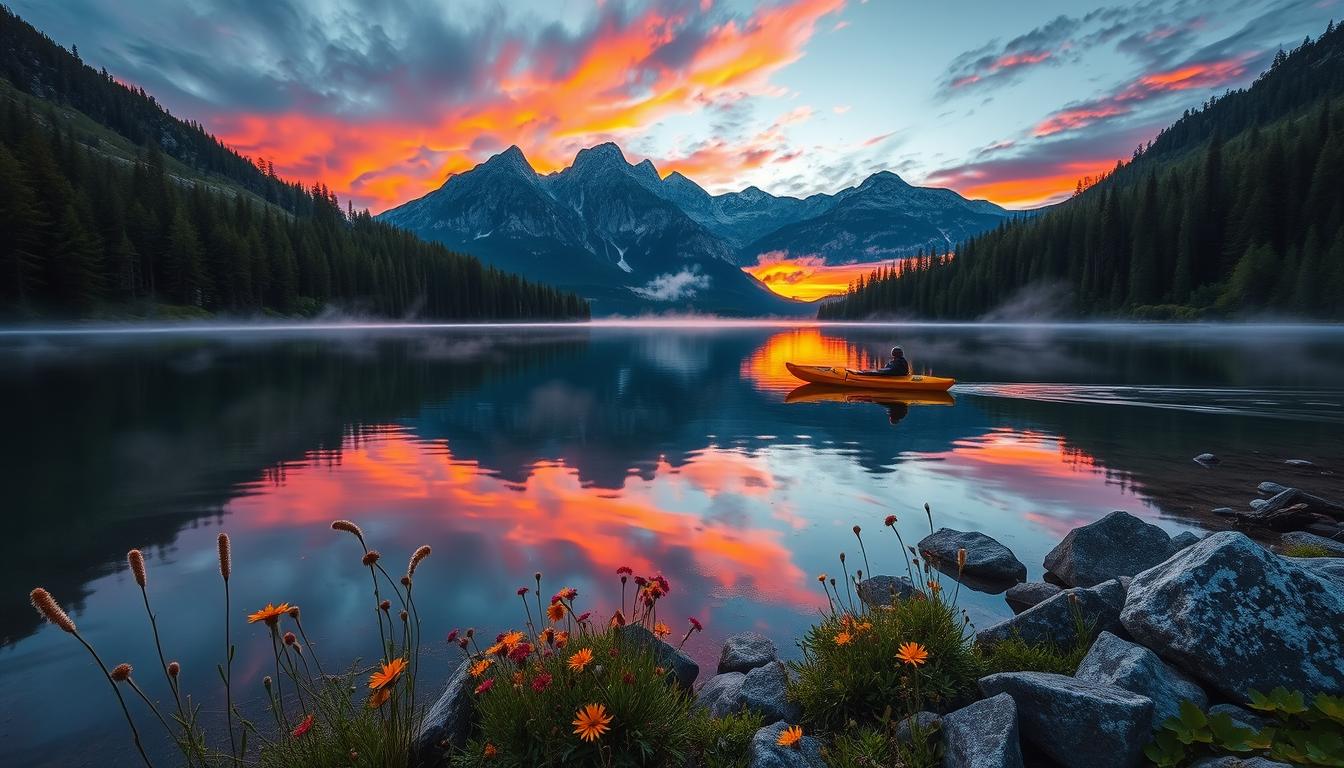
1 thought on “Kayak Camping Trips: Uncover the Hidden Gems of Nature”